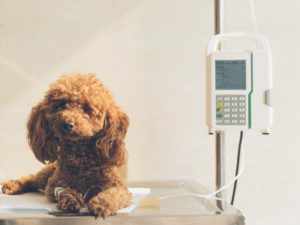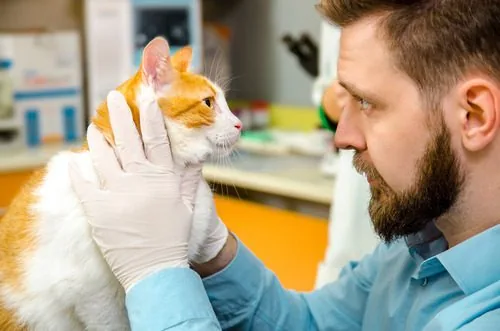Xylitol Poisoning in Dogs: What you Need to Know
In recent years, xylitol poisoning in dogs has become more prevalent because it is a significant ingredient in many foods and household products. You must keep these products out of paw’s reach to protect your dog’s safety.
Xylitol can be found in foods like candies, baked goods, and some kinds of peanut butter. It can also be noted in oral care products like toothpaste, mouthwash, and even vitamins. Xylitol poisoning can cause liver failure, depending on how much of the ingredient has been ingested and the size of your dog.
If you see your pup demonstrating any of the symptoms mentioned in this article, get them to the emergency vet right away, as time is of the essence. If you want to understand further about xylitol poisoning in dogs, peruse this article.
What is Xylitol?
Xylitol is a popular sweetener in foods, candies, and other products. It is used as a sugar replacement and resembles and tastes like sugar, but it has about 40 percent less calories. It is classified as five-carbon sugar alcohol.
Xylitol occurs naturally in certain foods, berries, and some other fruits. Xylitol originally comes from birch bark and can now be made from leftover corncob fragments from ethanol plants. It is often used in diabetic and low-carb diets.
Xylitol is found in a wide range of food items, but it is also found in oral care products and vitamins. Xylitol is popping up everywhere because it can be a better alternative to sugar for some people and even prevent tooth decay and cavities. Some items that contain xylitol include:
- Baked goods
- Breath mints
- Chewing gum
- Deodorant
- Mouthwash
- Some peanut and nut butter
- Sugar-free candies
- Sugar-free desserts
- Toothpaste
Some other products that contain xylitol include over-the-counter medicines, dietary supplements, nasal spray, and children’s and adult chewable vitamins.
What Happens When a Dog Consumes Xylitol?
Ingestion of xylitol can trigger hypoglycemia in dogs because the xylitol is very quickly released into their bloodstream, which results in a robust delivery of insulin from the pancreas. This release leads to a rapid drop in blood sugar, which occurs within ten to sixty minutes of consumption. The symptoms can escalate quickly and cause a life-threatening reaction.
With dogs, the absorption of xylitol is swift and complete. The consequence of xylitol poisoning in dogs can be as significant as liver failure. Xylitol poisoning is very dangerous for dogs but can be corrected at a veterinary hospital. A veterinary visit is necessary for the detoxification of xylitol.
How Much Xylitol is Lethal to a Dog?
Many products have different amounts of xylitol, and the amount of the product that will be toxic to a dog varies. For example, one stick of sugarless gum can harm a small dog, but it could be different for a larger dog. More often than not, the dose that causes poisoning is at a minimum of 0.05 grams per pound of weight. As a general rule, dogs who consume 0.1 g/kg of xylitol are at risk for hypoglycemia, but dogs who consume 0.5 g/kg of xylitol are at risk for liver failure.
What are the Indicators of Xylitol Poisoning?
Symptoms of a xylitol toxic condition can be sudden and unpredictable. They can take as little as ten to sixty minutes to arise, or they can even show up after twelve to twenty-four hours. Some of the indications of xylitol poisoning in dogs include:
- Acute collapse
- Black tarry stool
- Clotting issues
- Diarrhea
- Increased heart rate
- Seizures
- Vomiting
- Walking drunk
- Weakness
Other symptoms include trembling and jaundiced gums. Symptoms can vary from mild to severe. Still, it is essential to act swiftly, and if you see any of these warning signs in your dog, get them to urgent care immediately.

What Must I Do if My Dog Consumed Xylitol?
If your dog ingests a sugar-free food item, check the ingredient list to see if it contains xylitol. There may be other ingredients such as:
- Aspartame
- Erythritol
- Maltitol
- Saccharin
- Sorbitol
- Stevia
- Sucralose
None of the above ingredients are toxic to dogs, as xylitol is the one you need to watch out for. Read the ingredient list very carefully to make sure. If the above ingredients are listed, do not worry because they are not toxic to dogs.
Xylitol Toxicity Diagnosis and Treatment
Diagnosing xylitol toxicity in dogs is diagnosed based on your pup’s ingestion history and symptoms. Some dogs do not demonstrate signs right away. However, you want to get your dog some help for the best outcome possible. If you suspect that your dog has ingested xylitol, it is imperative that they receive prompt veterinary treatment.
Your veterinarian may induce vomiting. Do not induce vomiting in your canine unless directed by your vet because it could cause aspiration and dehydration. Your pup will likely require a stay at the animal hospital for care. Your vet will perform blood tests to:
- Balance electrolytes
- Check organ function
- Monitor blood sugar
During your pup’s stay in the hospital, intravenous dextrose will be utilized, and IV fluids will be administered to prevent dehydration and electrolyte imbalances. They will be given liver-protecting medications and anti-nausea medication.
Your pup’s heart rate and blood pressure will be monitored, as well as their body temperature. Anticonvulsants will be given if seizures develop. Most pups that are sent home will need to be on liver protectants for a few weeks. The vet may want to check your dog’s liver enzymes regularly to be safe.

How to Protect My Dog from Xylitol Poisoning
Food products like peanut butter can have xylitol, which is disturbing because it is a common treat that pet parents give their dogs. Xylitol can be listed on the merchandise ingredient list as “sugar alcohols,” which relates to a variety of sugar alcohols, including xylitol. You should check the ingredients of products you keep in the home to ensure they do not contain xylitol.
If you need a product with xylitol, ensure it is kept out of paw’s reach. Xylitol is normally listed below the food labels “other ingredients” or “inactive ingredients” area. It can also be listed under “supplement facts.” Check the product thoroughly and as carefully as you can. Never use your toothpaste to brush your pup’s teeth.
Conclusion
Xylitol is highly poisonous to dogs. If you suspect your pup has ingested xylitol, get them to the emergency vet immediately.
For dog parents in the Plymouth Meeting, PA area, The Village Vets are available to serve you and your dog. Call us today at (484) 820-1700 or make an appointment.
Recent Posts
About Veterinary Village
Veterinary Village offers excellent service to clients in a comfortable, friendly atmosphere. To learn more about us and how we can better serve you and your pet here in Plymouth Meeting, PA, click the button below.
Share This Post
Recent Posts
About Veterinary Village
Veterinary Village is a network of three animal hospitals based in Atlanta, GA and the surrounding area. We offer honest, excellent service to our clients in a comfortable, friendly atmosphere. To learn more about our locations and how we can better serve you and your pet, click the button below.



